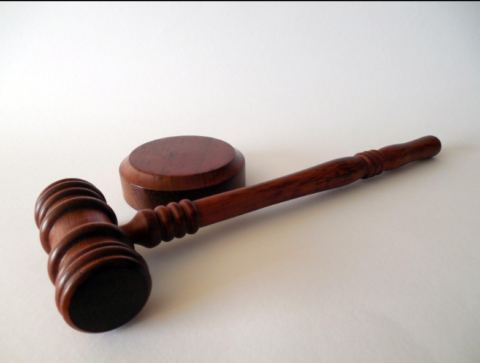Key Takeaways
- Personal injury attorneys are essential in assisting people with navigating the complexity of legal claims.
- Understanding what constitutes a personal injury case can help you decide when to seek legal help.
- Personal injury lawyers provide essential services from the initial claim process to settlements and court proceedings.
Personal injury lawyers advocate for victims, ensuring they receive fair compensation for damages. They navigate complex legal systems, provide expert advice, and negotiate settlements. Holding negligent parties accountable they help maintain safety standards and offer crucial support during recovery, promoting justice and societal well-being.
What is Personal Injury?
Personal injury is any harm caused to an individual due to someone else’s negligence or intentional actions. The scope of personal injury law covers many incidents, from car accidents to slip-and-falls. Understanding whether an incident qualifies as a personal injury can be complex, requiring detailed knowledge of the law and individual case circumstances. This intricacy emphasizes the importance of legal counsel as soon as possible.
In many situations, it might be beneficial to seek expert advice. Legal professionals like those at https://injurylawpartners.com/ may provide guidance and help you through the legal system. This advice is essential, mainly when a lot is on the line, and the results might significantly influence your life. With the proper legal support, you can better understand your rights and the merits of your case.
The Role of a Personal Injury Lawyer
Personal injury lawyers handle the intricate claims process, providing legal representation to individuals seeking compensation. Their expertise spans from evidence collection to settlement negotiations. They understand insurance companies’ strategies to minimize payouts and can counter them effectively. Their primary responsibility is to ensure just compensation for losses, such as medical costs, missed income, and pain and suffering. Their specialized knowledge of personal injury law allows them to build strong cases to withstand scrutiny in settlement negotiations and court proceedings.
When to Contact a Personal Injury Lawyer
It’s critical to speak with a personal injury attorney as soon as possible if you were injured due to someone else’s carelessness. Doing so can help you preserve evidence and handle complex legal issues. Prompt action can improve outcomes, as evidence can degrade over time. Lawyers can provide immediate advice on steps following an incident, strengthening your case. Furthermore, it is crucial to comprehend the statute of limitations for bringing personal injury claims since failing to do so may result in losing the ability to pursue compensation.
Common Types of Personal Injury Cases
- Car Accidents
- Slip-and-Fall Incidents
- Medical Malpractice
- Workplace Injuries
- Product Liability
These situations frequently include minute nuances requiring in-depth knowledge of the medical and legal ramifications. Every type of personal injury case has difficulties and requires a unique strategy to guarantee the best result. For instance, expert witness testimony is frequently needed in medical malpractice lawsuits to establish the standard of care and show how it was violated. Similarly, car accident cases may necessitate accident reconstruction experts to illustrate the events leading to the collision.
Initial Steps in a Personal Injury Case
When something goes wrong, it’s essential to get medical help immediately, record the damage, gather proof, and thoroughly account for all out-of-pocket spending for things like medical bills, missed earnings, and repairs. These documents assist in establishing the appropriate level of compensation to be sought and provide concrete evidence of the financial effect of the accident. Additionally, keeping a personal journal of the recovery process can be beneficial, as it can provide compelling evidence to support the case for compensation for pain and suffering.
Negotiations and Settlements
Most personal injury cases are resolved out of court, and during the bargaining stage, legal representation is essential. The process involves extensive discussions between the lawyer and the defendant’s insurance company or legal team to reach a mutually agreeable settlement. This process can be time-consuming and requires a deep understanding of legal principles and tactics. A skilled lawyer will assess the full extent of damages, including future medical costs and lost earning potential, to ensure the settlement offer accurately represents the claim’s actual value. This holistic approach ensures adequate compensation for all past, present, and future losses from the injury.
Going to Court
If negotiations fail, a personal injury case may proceed to court. A lawyer will represent the client during the trial, presenting evidence and making legal arguments. The court process can be daunting, but you can navigate it successfully with proper legal representation. The lawyer handles all aspects of the trial, from filing documents to presenting the case to a judge or jury. Pre-trial motions, discovery procedures, and numerous hearings may all make for drawn-out and intricate court proceedings. A reliable personal injury lawyer can significantly enhance your chances of a favorable verdict by meticulously preparing your case, gathering expert testimonies, and countering the defense’s arguments.
Benefits of Hiring a Personal Injury Lawyer
Having a personal injury attorney on staff has several advantages, such as access to knowledgeable information, help with paperwork and negotiation skills with insurance companies. They may offer priceless help and direction and significantly increase the likelihood of a claim’s success. Personal injury attorneys sometimes take cases on a contingency fee basis, which means they only get paid if the client wins. This model enables victims to acquire high-quality legal counsel without paying up front. Victims may now more easily seek justice and negotiate the complicated judicial system thanks to this arrangement.





